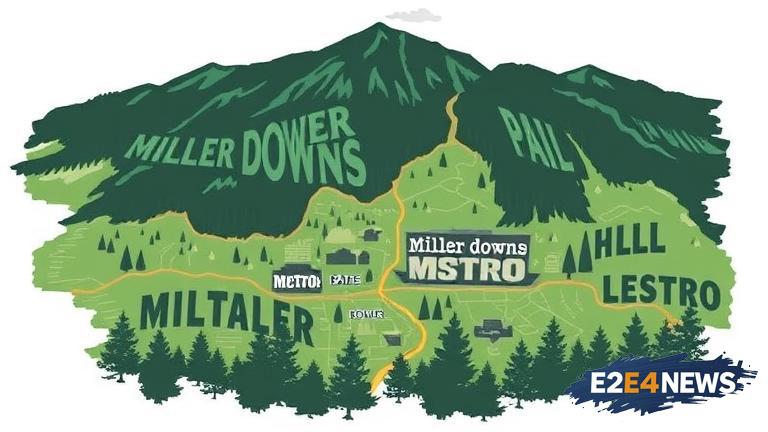The Miller Downs Metro District, a special taxing district in Colorado, has been embroiled in a heated dispute with a group of landowners over the use of eminent domain. The district, which was established to provide infrastructure and services to the area, has been seeking to acquire several parcels of land to complete a long-planned development project. However, the landowners, who claim that the district’s actions are unconstitutional, have refused to sell, sparking a bitter legal battle. The case has sparked debate over the limits of government power and the rights of property owners. The district argues that the land is necessary for the completion of the project, which will bring much-needed amenities and services to the area. On the other hand, the landowners claim that the district’s actions are a clear example of government overreach and that they are being unfairly forced to give up their property. The dispute has been ongoing for several years, with both sides exchanging heated rhetoric and accusations. The landowners have accused the district of bullying and intimidation, while the district has claimed that the landowners are simply trying to hold out for a better price. The case has also raised questions about the use of eminent domain in Colorado, with some arguing that the state’s laws are too broad and allow for abuse. The district’s actions have been supported by some local officials, who argue that the project is necessary for the area’s economic development. However, others have expressed concerns about the impact on the community and the potential for abuse of power. The case is currently making its way through the courts, with a ruling expected in the coming months. The outcome is far from certain, with both sides confident that they will emerge victorious. The dispute has also sparked a wider debate about the role of government in development projects and the balance between public and private interests. Some have argued that the district’s actions are a clear example of crony capitalism, with government officials and developers working together to push through projects that benefit a select few. Others have argued that the project is necessary for the area’s growth and development, and that the district’s actions are a reasonable use of government power. The case has also raised questions about the impact on the local community, with some residents expressing concerns about the potential for increased traffic and noise. Despite the controversy, the district remains committed to completing the project, which they claim will bring significant benefits to the area. The landowners, on the other hand, remain determined to fight the district’s actions, which they claim are a clear violation of their rights. The case is being closely watched by developers and government officials across the state, who are eager to see how the courts will rule on the issue. The outcome is likely to have significant implications for the use of eminent domain in Colorado, and could potentially set a precedent for future cases. The dispute has also sparked a wider debate about the role of government in development projects, with some arguing that the district’s actions are a clear example of government overreach. Others have argued that the project is necessary for the area’s growth and development, and that the district’s actions are a reasonable use of government power. The case is a complex and contentious one, with both sides presenting strong arguments. The courts will ultimately have to decide whether the district’s actions are constitutional, and whether the landowners’ rights have been violated. The outcome is far from certain, and the case is likely to be closely watched by developers, government officials, and property owners across the state. The dispute has also raised questions about the impact on the local community, with some residents expressing concerns about the potential for increased traffic and noise. The case has also sparked a wider debate about the balance between public and private interests, with some arguing that the district’s actions are a clear example of crony capitalism. Others have argued that the project is necessary for the area’s growth and development, and that the district’s actions are a reasonable use of government power. The case is a complex and contentious one, with both sides presenting strong arguments. The courts will ultimately have to decide whether the district’s actions are constitutional, and whether the landowners’ rights have been violated. The outcome is far from certain, and the case is likely to be closely watched by developers, government officials, and property owners across the state.
